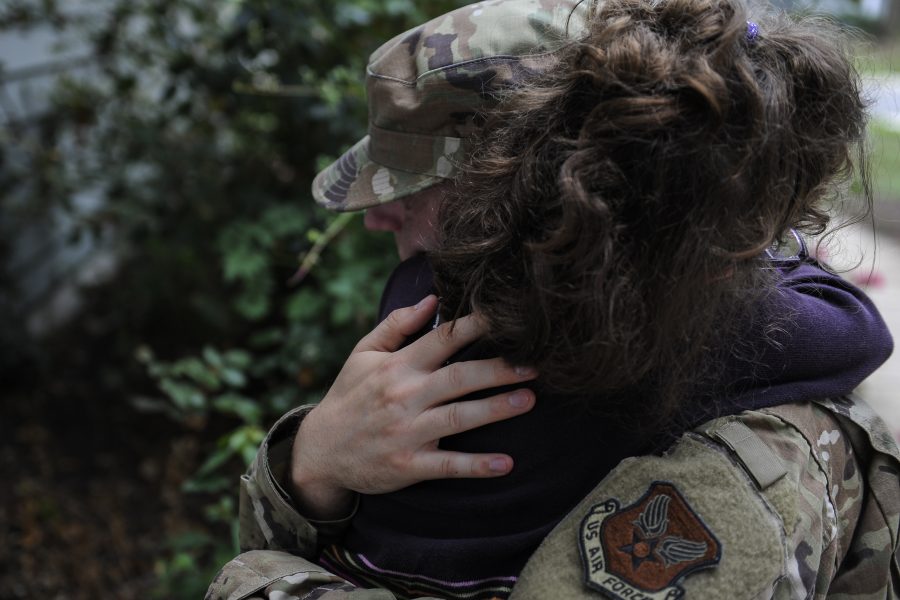The Department of the Air Force is launching a review of its mental health, family advocacy, and other support programs for Airmen and Guardians, as part of an ongoing struggle with suicide in the ranks and to offer better care during the coronavirus pandemic.
A new Air Force task force called “Operation Arc Care” is taking a fresh look at bolstering service members’ resiliency in the face of stress and adversity.
“Our people are the most important resource we have,” said Chief Master Sergeant of the Air Force JoAnne S. Bass in a Feb. 11 release. “We’ve been hearing their challenges, and we owe it (to) them to build a strategy that ensures our Airmen, Guardians, and families get the care they need, wherever they are, and whenever they need it.”
The task force is taking the long view, opting for an open-ended, five-year strategy that the department says can give leaders the flexibility they need to tailor support programs to their troops. That strategy is now in the works, and should be done by the end of March.
Aspects of the military that fall under the review include unit leadership, the chaplain corps, key spouse programs, mental health clinics and alcohol and drug abuse prevention initiatives, the Air Force Wounded Warrior Program, and more.
The group plans to issue recommendations later this year for potential changes in those areas that “remove policy barriers and … improve the experience of care” for service members and their families, Col. Laura Ramos, Air Force Resilience strategic partnership division chief, said in the release.
“We’re using community-focused programs customized by major command, base, and garrison-levels because they are best suited for answering the needs of their Airmen, Guardians, and families in their unique locations,” Ramos said. “We recognize that having a worldwide presence makes us a ‘community of communities’ and while many needs are universal, some are specific to certain units, missions, people, areas, and geographic locations.”
Their work began in 2019, when then-Chief of Staff Gen. David L. Goldfein ordered all wings to stand down for a day to discuss suicide prevention. The Air Force has seen around 100 or more suicides a year since 2014.
Despite their efforts, that pace hasn’t slowed: 98 Airmen had killed themselves in 2020 as of mid-September, the service said in its most recent public tally. For many, pandemic-era stressors—such as an inability to spend time with loved ones and the shift to virtual work and schooling—are an added mental-health concern.
Feedback from the ops pause and beyond led the department to create its Arc Care team. Starting in November 2020, the group gathered more data and looked at the policies and resources of Air Force and Space Force support programs and services. That information is now shaping the ultimate strategy and the group’s guidance on how to move forward.
“Are leaders at every echelon involved?” Air Force Resilience Director Brig. Gen. Claude Tudor said in the release. “What resources will we have at your fingertips to click on or call to make an appointment that helps you find their way? Are we providing those resources and are they readily available for all forces and family members to understand and use? That is what we want to get after.”


